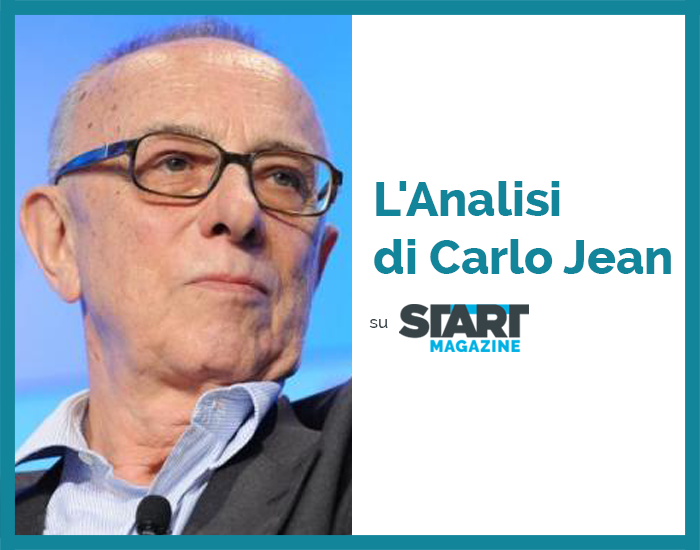I’ll explain how it will end in Ukraine between Russia and NATO

Ukraine: The real problem is how to enable Russia to withdraw without being humiliated too openly. The analysis of General Carlo Jean
The Ukrainian question presents somewhat paradoxical aspects. Who should say they are not worried and ask to tone it down. Who should be less – like the US and the UK – blow the fire instead, arguing that a massive attack from Moscow is imminent. Only a great war that ends with the occupation of the whole of Ukraine can resolve the concerns for Russia's security, raised by Putin to justify his pressure on Kiev. However, it would entail the risk of global escalation, perhaps even the use of nuclear weapons.
Ukraine is too big a mouthful for Moscow. A full-scale war would deplete its resources. It would result in unacceptable losses. It would weaken Russia by accelerating its dependence on China. On the other hand, a "only limited war", with the enlargement of the secessionist regions of Donbas and with the extension of Russian control to the coastal areas of the Azov and Black Seas or with the change of regime in Kiev, it would not halt Ukraine's march to the West. Indeed, it could accelerate it. However, it would entail high costs and losses for Moscow. It would be hit by heavy financial sanctions, likely combined with embargoes not only on strategic technologies, but on all advanced Western technologies, with the consequent collapse of the Russian consumer goods industry.
So? How to get out of the crisis without anyone losing face? The most critical situation is that of Putin. It has likely underestimated the US and NATO's ability to react and overestimated its ability to divide the transatlantic alliance, as well as China's willingness to support it, for example by increasing pressure on Taiwan. The support given by the Chinese Foreign Minister, Wang Xi, was minimal. He told Secretary of State Blinken that he takes the Kremlin's concerns for Russian security seriously, to avoid escalation and to abandon the Cold War mentality, while also hinting that Putin is the one who is following it.
The Russian-American negotiations – after the return to the sender of Putin's requests to the US and NATO to withdraw from Eastern and Baltic Europe and to give a formal guarantee on the perpetual exclusion of Ukraine from NATO – will continue. But they will not produce any results. As a result, the situation on the Russian-Ukrainian border will continue to remain tense. It should stall. It is to be hoped that no one will lose their minds and that possible accidents will not lead to an unstoppable escalation. The risks of a conflict would not be solely military or related to supplies to Europe of Russian gas. They could also provoke waves of refugees to Europe.
While waiting for some formula to emerge from the impasse, the "muscular coercive diplomacy" on the part of Russia and, consequently, of the West will continue. For the latter it would remain qualitatively that of today. It may vary quantitatively. For Moscow it could take on different intensity and include different actions. It is impossible to predict. At its lower limit, it would involve propaganda and disinformation actions, cyber attacks, support for pro-Russian elements (especially oligarchs and 50 pro-Russian members out of 450 of the Kiev Rada), organization of all the paraphernalia used in the "color revolutions", economic pressures and financial, aimed at eroding the resilience of the Ukrainian population, and so on.
However, the Kremlin could also adopt a more risky strategy, aimed at forcing the hand: to recognize the independence of the secessionist regions of Donbas as done for Abkhazia and South Ossetia, or to formally annex them, as it did in 2014 with the Crimea; infiltrate nuclei of "little green men", to support local terrorists and carry out attacks against pro-Western politicians or strategic ganglia of Ukraine; to support a coup d'état in Kiev , which would be the reverse of Euromaiden; to carry out attacks on his own troops in Russia as well, to justify a reaction and flex his muscles.
Even if it was just a bluff on Putin's part, things must not go too far. The problem is how to enable the Russian president to withdraw without being too openly humiliated. This could explain why the Ukrainian president, Zelenski , appeals to the US for calm and not to adopt too strong retaliatory measures, which would force Putin to "relaunch", neglecting the cold suffered by his soldiers in the Sarmatic winter. They certainly wonder why, after having been deployed on the Ukrainian borders since last March, they are standing still awaiting the order of attack, while the Ukrainians receive a large number of modern weapons from the West.
This is a machine translation from Italian language of a post published on Start Magazine at the URL https://www.startmag.it/mondo/vi-spiego-come-finira-in-ucraina-fra-russia-e-nato/ on Sun, 30 Jan 2022 10:58:17 +0000.
